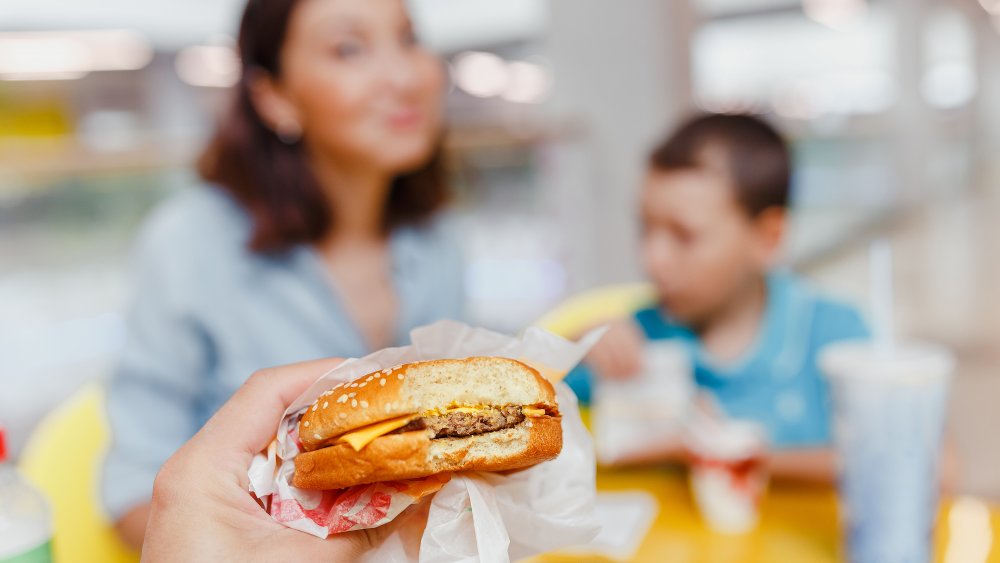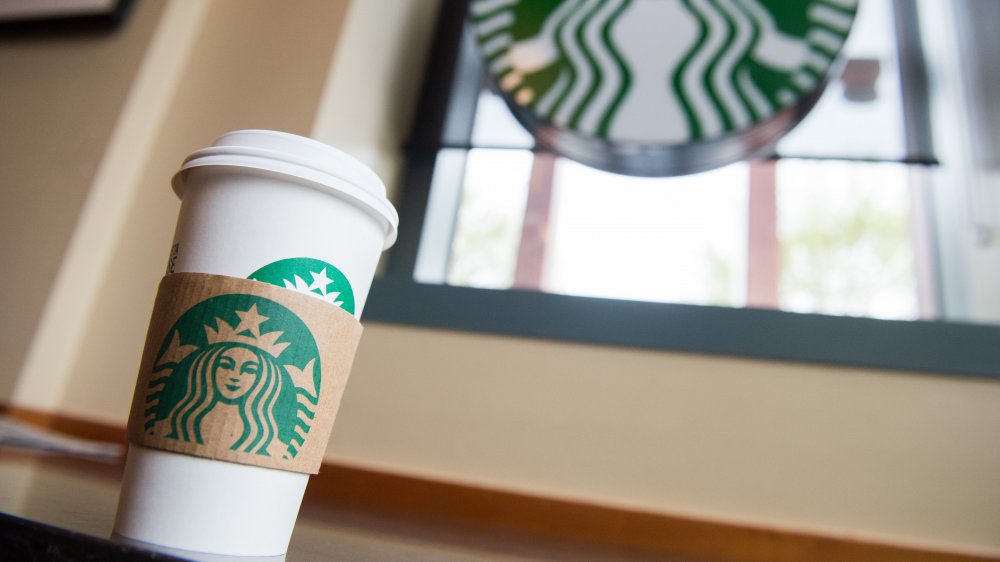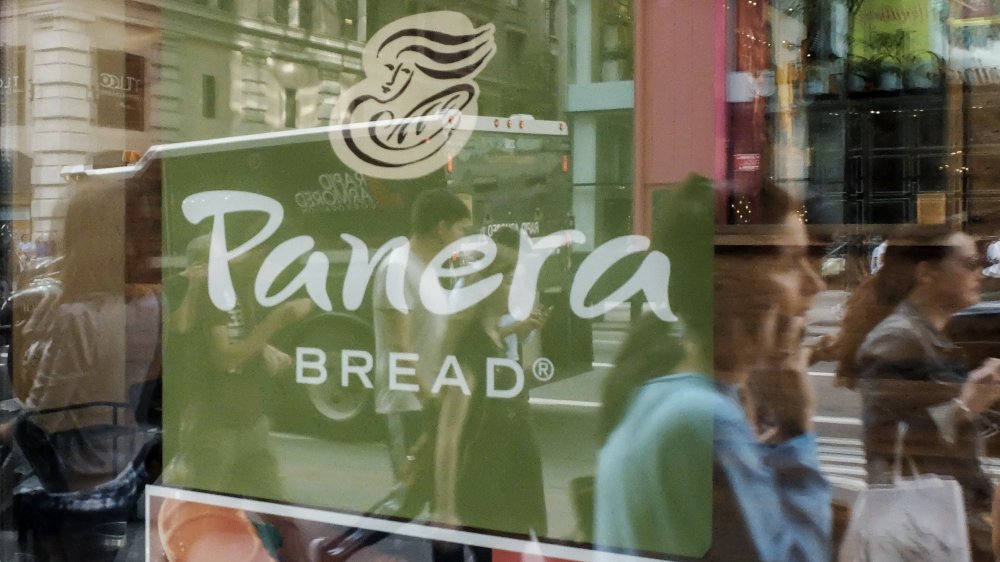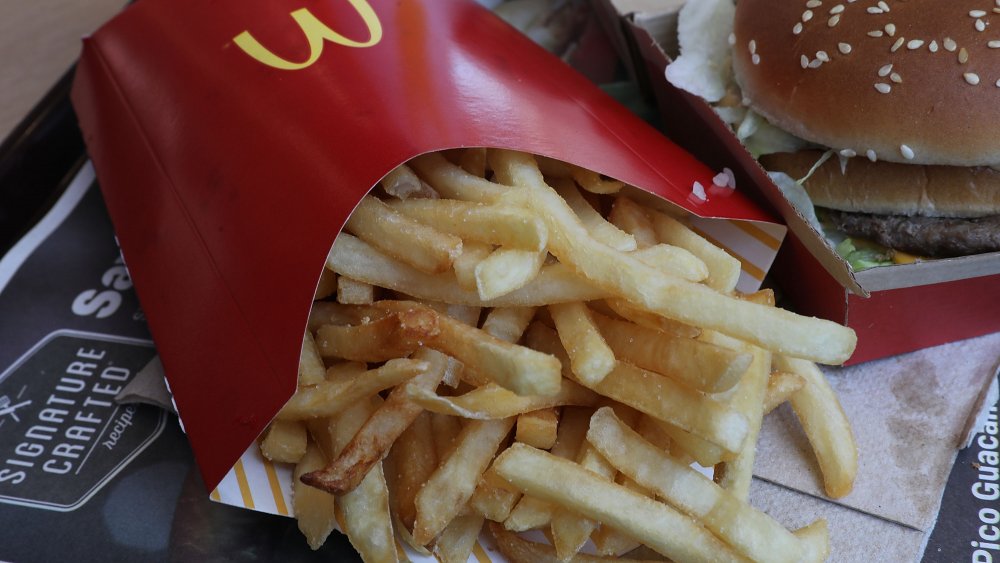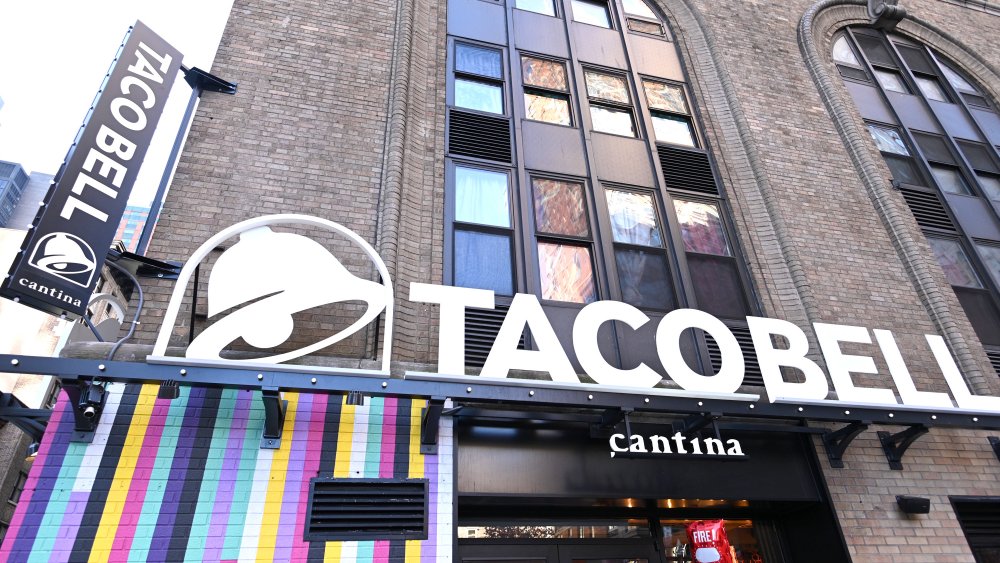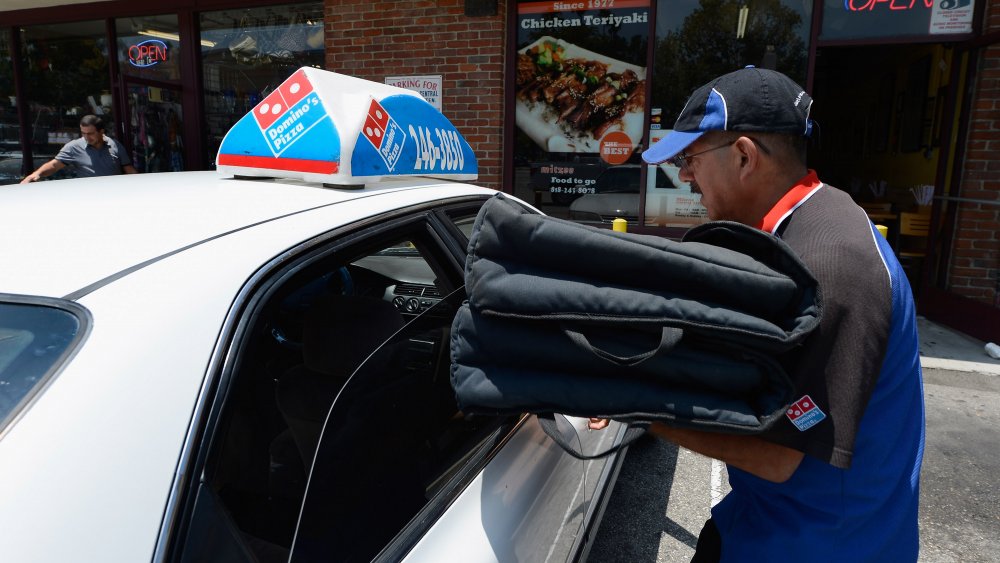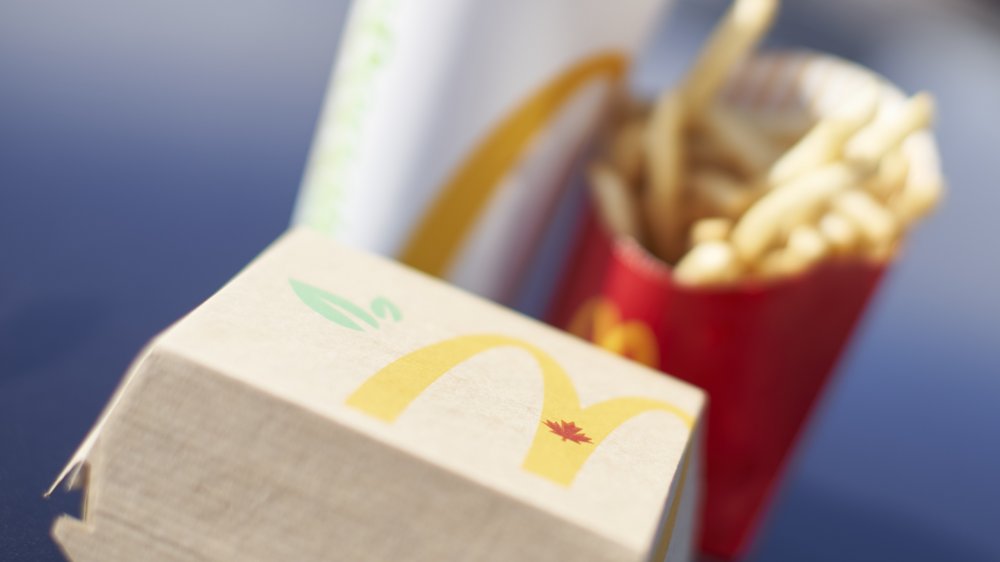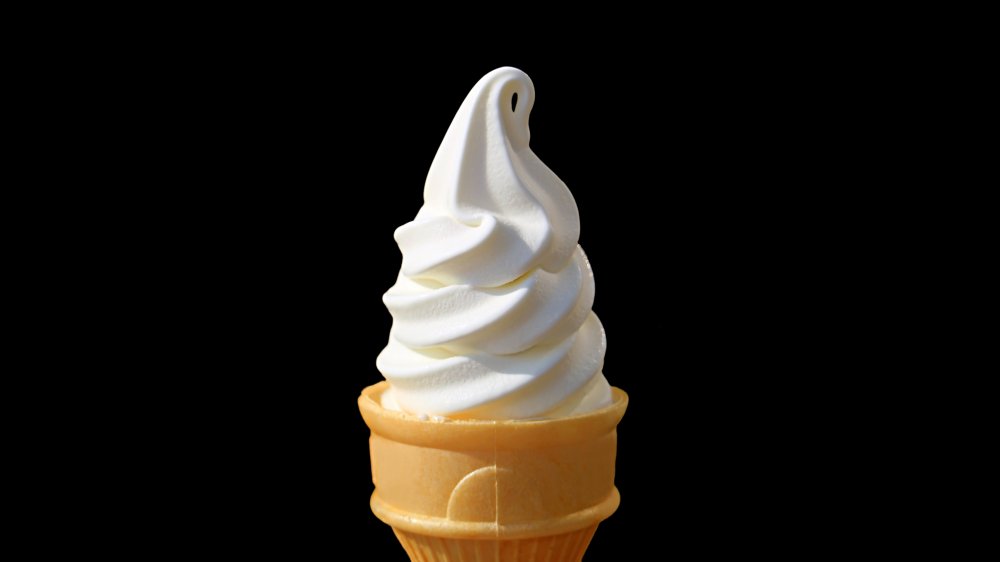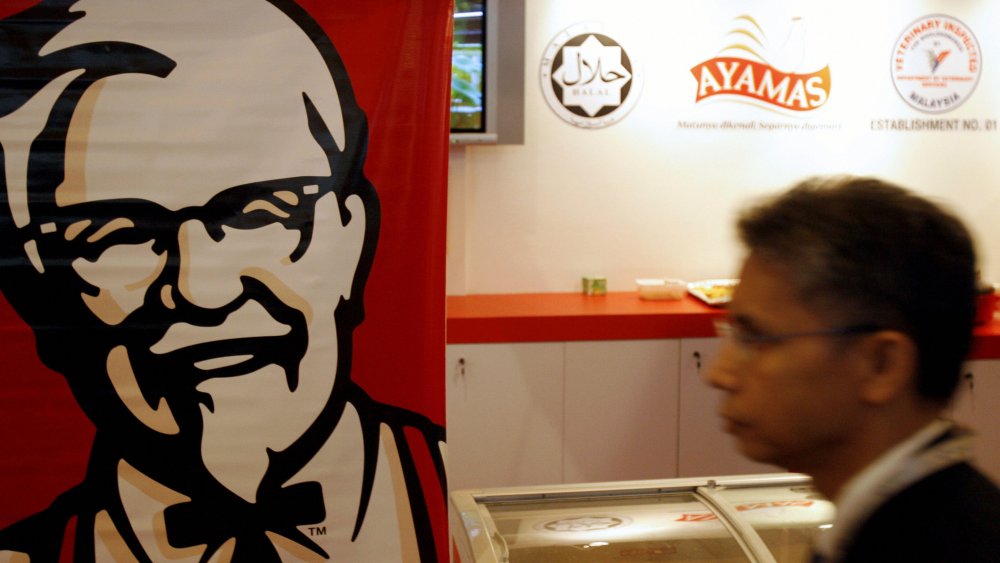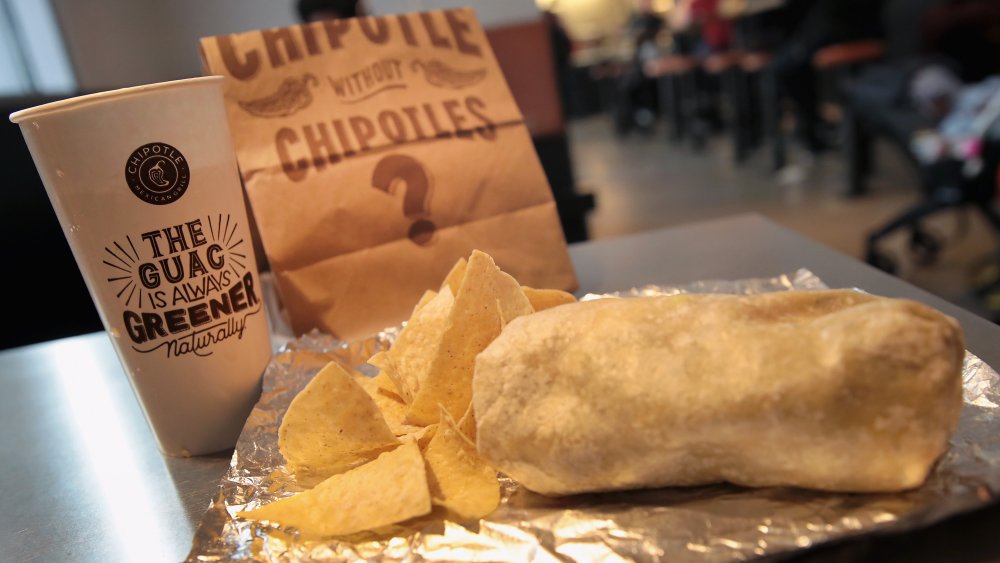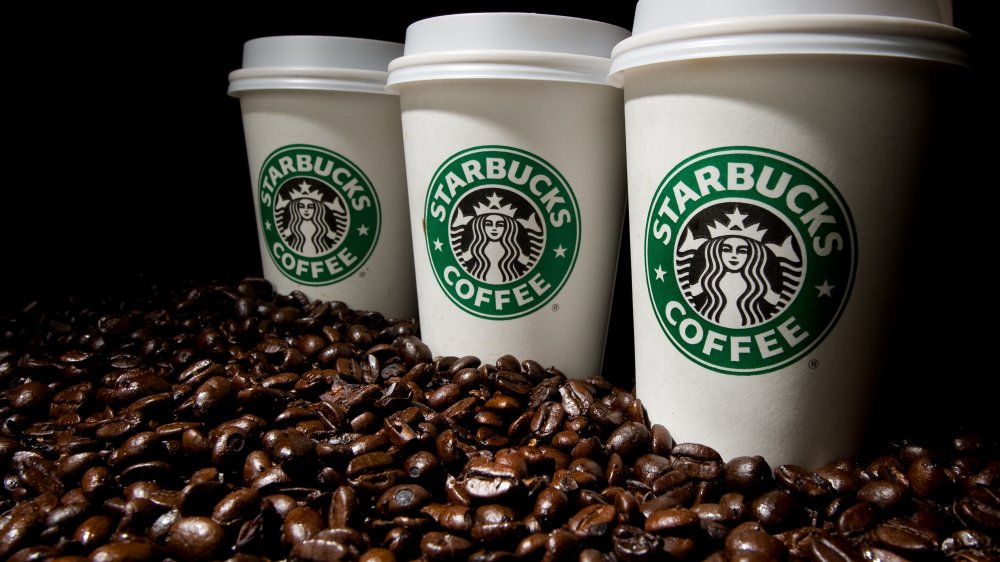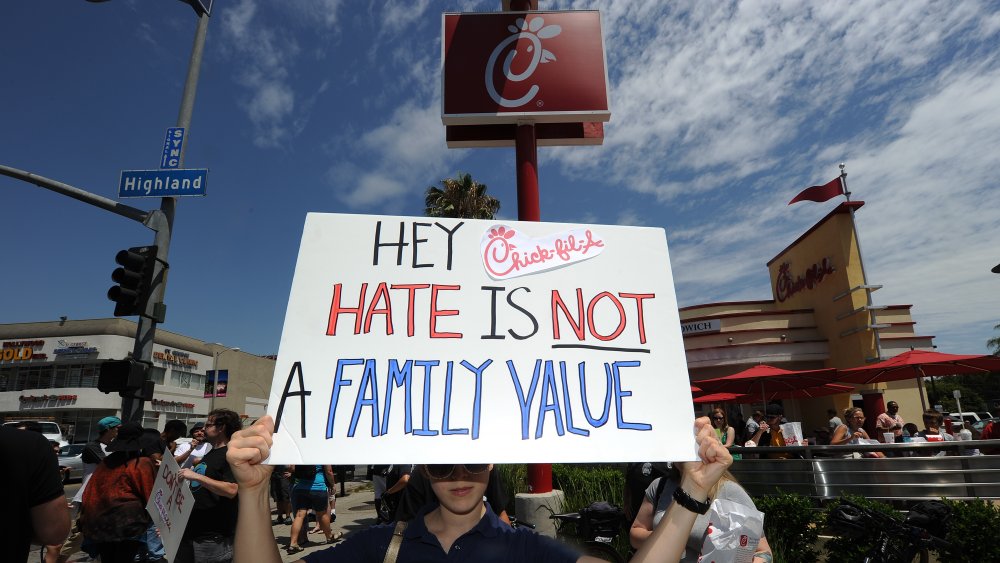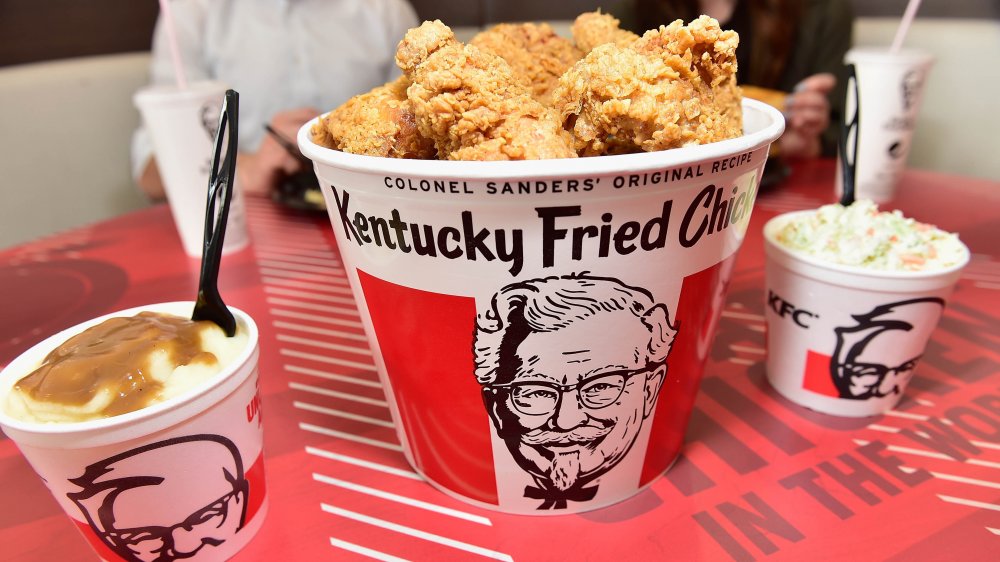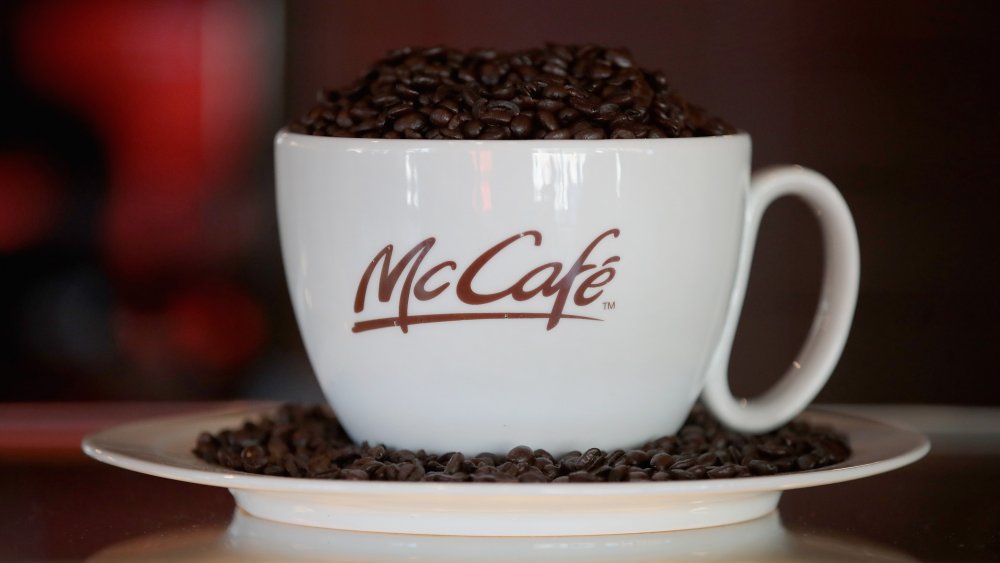The Biggest Secrets Fast Food Restaurants Tried To Hide
Be honest: how much do you really think about the companies you're buying fast food from? Have you ever wondered about the cleanliness of your local McDonalds, about who's picking all those fruit and vegetables (and how much they're getting paid), or about what happens to your garbage after your throw it out?
Are you really getting what you think you're getting? Are the profits they're making off you going to good use? When you make choices and purchases because you think you're doing the right and the responsible thing... would you want to know if it's not so clear cut?
Fast food companies are like any other big corporation — there are some skeletons in those closets. Sure, no one is perfect and success often comes at a price, but considering customers are the ones paying, you should be aware of just what you're supporting and what secrets these fast food favorites have tried to keep safe behind closed doors.
Most fast food coffee cups aren't recycled
Sometimes, you just need a hot cup of coffee to get you through the rest of the day, and you might not think much of swinging through a drive-thru and grabbing one. But here's the thing — in 2018, the BBC estimated that 99.75 percent of those coffee cups don't get recycled.
Statistics are staggering: according to CNN, Starbucks alone went through a whopping 3.85 billion paper cups just in 2017. That's an insane amount of garbage, and even though some chains — like Starbucks and some McDonald's — made the seemingly responsible move of replacing their plastic straws, they're still spitting out a ton of garbage in the form of non-recyclable cups. (Here's another fun fact: those paper straws? It turns out, says the BBC, they're not recyclable, either — they're too thick.)
It's not like they haven't tried, though. It turns out that it's difficult to make a paper cup that will not only hold up to a hot beverage without falling apart or changing the way it tastes, but also be affordable enough to produce in mass quantities. But what about those cups that have the recycle symbol on them? It's true that they are technically recyclable, but most facilities don't have the capability of separating the paper from the plastic lining. And that means most end up in landfills, which is exactly what we don't want.
Panera Bread's food isn't as fresh as you think
Sometimes, you're just not feeling like a burger that's been sitting under the warmer for an indeterminate amount of time. You might opt to head to Panera Bread for something a little fresher and a little more "homemade," but it turns out that there's a lot at Panera that's not as fresh as you think.
When two former employees spilled the beans to Refinery29 in 2017, they admitted that almost no cooking was done on-site. Soup, mac and cheese, and oatmeal arrived pre-cooked and frozen, and were then heated up in hot water baths. Bread dough arrived frozen, but, they say, they did make their own croutons.
Do some more digging, and you'll find troubling tales told by employees. Those cupcakes and the coffee cake, they say, comes frozen and is thawed at the store... along with pretty much all of those delicious-looking pastries in the bakery counter. Many salad and sandwich toppings come in frozen as well (although employees do stress they're high-quality).
Still other employees say that the green tea and lemonade dispensers might be putting out a product that's showing some signs of age (i.e., mold), too, because they're usually not cleaned as often as some of the other machines. It's all food for thought.
McDonald's fries still aren't vegetarian
If you're trying to cut meat and meat products out of your diet, grabbing a large fry from McDonald's might seem the way to go. But, unless you're in India, you should know they're not actually vegetarian.
In 2002, McDonald's settled a massive lawsuit, says CBS News. They were sued for mislabeling hash browns and fries as vegetarian, when they were, in fact, prepared with an oil flavored with essence of beef. For a country with a large Hindu population, that was a huge deal. McDonald's issued an apology and $10 million in charitable donations, and they were also sued in the US for the same issue. However, McDonald's responded to the US lawsuit by saying that they never actually claimed their fries were vegetarian in the States, and according to ThoughtCo, they still weren't vegetarian as of 2019.
Way back in ye olde times, McDonald's fries were cooked in lard — which is definitely an animal product. When they switched to vegetable oil, there were a ton of complaints about the taste of the fries. Beef flavor was added to get the same taste fries had before the switch, but that also means that if you're serious about going vegetarian, skip McDonald's fries.
Taco Bell stole that adorable (but offensive) chihuahua
Ah, Taco Bell — everyone's favorite late-night guilty pleasure. Remember that adorably feisty chihuahua that was their mascot for a long time? Whatever happened to him, anyway?
He was the subject of a massive lawsuit.
The creators of the ad campaign, Joseph Shields and Thomas Rinks, sued for breach of contract after, they claimed, Taco Bell took their idea for the ad campaign and ran with it. According to BusinessWire, the pair developed the concept of "Psycho Chihuahua," then pitched advertising ideas and commercials to Taco Bell. Taco Bell, in turn, broke off contact but still used the character.
They won the lawsuit, after a jury deliberated for just a few hours. Taco Bell was ordered to pay them $30 million, but that wasn't the end of the story. Taco Bell hit back, countersuing with a claim that it was the ad agency's responsibility, not theirs. According to The Seattle Times, it backfired — they were ordered to pay another $12 million in interest on the judgement.
Domino's pizza tracker is a lie
The pizza tracker is a great idea. The only thing better than ordering pizza is knowing exactly when it's going to show up at your door, but those in-the-know say Domino's pizza tracker isn't all it's cracked up to be.
According to one former delivery driver (via Gizmodo), the pizza tracker is essentially set up to reflect corporate ideals. Corporate knows exactly how long it should take an employee to make a pizza after it's ordered, for example, but we all know there's no such thing as a perfect world. Drivers and employees have a whole bunch of ways of tricking the system, including using fake accounts and doubling up on deliveries.
Still want to believe? One intrepid pizza-lover from Mel made it his mission to stake out his local Domino's and find out the truth. He placed his order, then sat in the restaurant, secret agent-style, to observe whether or not what was going on matched up with what his tracker said. It absolutely didn't. He saw his pizza being made when his tracker claimed it was already in the oven, and it definitely wasn't on the way to his home when he tracker claimed. Strangely, it also ended up being delivered a full eight minutes before the tracker updated to say so, and there's a lesson here: don't rely on the tracker to know when you'll have to be at the door.
McDonald's has been sued for overcharging... and they can
When is the last time you checked your receipt after going through the line at McDonald's? You might want to start, because they've been sued for being super sneaky and, some say, super deceptive on the way they label their meals and assign prices.
In 2016, Money reported on a lawsuit filed by an Illinois man who had actually done the math on his order. He found that a two-cheeseburger Extra Value Meal actually cost 41 cents more than purchasing the components individually, and that's the exact opposite of value. That's not the only time it's happened, either. Also in 2016, a Chicago woman found that the two sausage burrito Extra Value Meal also cost more than the items would separately, and also sued based on the fact it was what they called deceptive advertising.
According to Vice, Extra Value Meals weren't created to be cheaper, they were created to make it faster for employees to ring out transactions. They also said a judge had ruled it wasn't deceptive, because the prices were clearly listed and anyone who did the math would see which is cheaper. Will you start ordering items separately?
There's a reason fast food restaurants have to call it soft serve
Stop at Dairy Queen, and you'll notice that there's no actual ice cream on the menu — it's called "soft serve." The same term is used at McDonald's and many other fast food chains, so what gives?
It turns out that determining whether or not something is actually ice cream is surprisingly complicated. According to FDA regulations, a product has to contain at least 10 percent milkfat (which is also sometimes called butterfat) in order to earn the right to be called ice cream. Dairy Queen, for example, uses a product that has just 5 percent milkfat for their Blizzards, cones, and sundaes. Strangely, while that means you're not technically getting ice cream, you're getting a product that could be considered "reduced-fat" by those same guidelines... which seems like something they would want to market, but choose to ignore instead.
McDonald's says the same thing about their soft serve, and it's more formally known as different things. It was once called "ice milk", which is now an obsolete designation in the US. "Soft serve" definitely sounds better.
Colonel Sanders hated KFC
Colonel Sanders was a very real person, born in 1890 and working for decades to perfect his fried chicken recipe and get others on board with selling his chicken. He sold "Kentucky Fried Chicken" in 1964, and even though he stayed on as spokesman, he didn't necessarily always like what the company he founded was doing.
In 1970, the New Yorker took a look at the debate; specifically, the gravy. While the Colonel's gravy was undoubtedly delicious, corporate complained "you had to be a Rhodes Scholar to cook it." It was too costly, too easy to screw up, and took too much time to make. It got changed, and Sanders wasn't happy. "Ain't fit for my dogs," was the exact comment, and as you might imagine, corporate liked his attitude about as much as he liked their new gravy.
In 1978, they sued him for libel — after he called the gravy "wallpaper paste." According to The New York Times, the lawsuit was thrown out because the remarks weren't made about any one particular location, but were just a sort of general observation. Do we now want to try the original recipe gravy? Yes, yes we do.
Chipotle held out on guaranteeing a fair wage for tomato-pickers
In 2006, Chipotle was approached by the Coalition of Immokalee Workers and asked to join their Fair Food Program. The goal was to help protect Florida farm workers, pushing to secure fair wages and good working conditions for them. That's laudable, right? Especially considering the high volume of tomatoes Chipotle sources from Florida, especially during the winter months.
But they didn't actually sign until 2012, says The Denver Post, a full six years after being approached. They agreed to sign on after coalition members — joined by members of the clergy and other organizations — protested Chipotle's headquarters.
The Huffington Post says talks of Chipotle joining the CIW really fell apart in 2009. Even though, they said, their missions aligned, Chipotle didn't like the fact that part of the deal was a requirement that stipulated the chain needed to ask the CIW for permission to source tomatoes from growers outside their network. At the time, Chipotle promised to do their best to only buy from CIW-supported workers, but that just left tomato-pickers wondering just why Chipotle wouldn't just make it official for so long.
Not everyone thinks Starbucks is Fair Trade-friendly
Starbucks has touted itself as being Fair Trade-friendly and as supporting the farmers who are actually growing all the coffee we know, love, and couldn't get through a day without. But in 2006, they had a massive falling out with the charity Oxfam. According to The Guardian, Oxfam went as far as to accuse the chain of blocking farmers' attempts at trademarking their coffee beans.
And it's a big deal — by trademarking their coffee, farmers would have more leverage when it came to bargaining with buyers and suppliers. Oxfam director of campaigns Phil Bloomer had harsh words for Starbucks, saying, "Starbucks ... has tied the hands of Ethiopian farmers who produce world-famous coffees, but who are prevented from taking full advantage of this to help work themselves out of poverty."
Starbucks eventually went on to recognize the legitimacy of the names, which the World Intellectual Property Organization says were eventually trademarked... after a dispute that made Starbucks look very, very bad.
Chick-fil-A continued donations to controversial charities
Chick-fil-A is certainly no stranger to controversy, and in 2007 CEO Dan Cathy took a very vocal stance against gay marriage. He said (via Vox), that the country was "inviting God's judgement on our nation when we shake our fist at him and we say we know better than you as to what constitutes a marriage." The outrage resulted in an apology from the company promising that they would leave the debate, but that wasn't the whole story.
People were also upset that the Cathy family's charitable organization was donating a ton of money to anti-LGBTQ organizations, including places like Exodus International. At the time, the group was promoting the practice of conversion therapy.
Chick-fil-A also promised to stop donating to anti-gay organizations. But they've continued to do it: financial documents reveal that they've donated hundreds of thousands of dollars to the Fellowship of Christian Athletes (which forbid employees from partaking in "homosexual acts"), the Salvation Army (which has been accused of discrimination), and the Paul Anderson Youth Home (which preaches that gay marriage is a sin).
Chick-fil-A's official rebuttal claims they're only supporting summer camps and gift-giving during the holidays and donations are made without a political agenda. But not everyone is convinced, and naysayers claim that supporting the projects of an organization is to also support their values and teachings.
KFC's secret recipe
KFC has marketed their 11 herbs and spices recipe as top secret for years, they've teased a big reveal only to back out at the last second, and according to Today, they've even sued people who have stumbled across the recipe. But in 2016, a Chicago Tribune reporter talking to Colonel Sanders' nephew, Joe Ledington, may have stumbled across the real thing and blown the long-standing secret recipe wide open.
The reporter was being shown a family scrapbook when they came across the will of Sanders' second wife. On the back was a list of ingredients. Eleven ingredients, to be precise, and Ledington confirmed that they were, indeed, "the original herbs and spices that were supposed to be so secretive."
What are they? It read: "⅔ Ts salt, ½ Ts thyme, ½ Ts basil, ⅓ Ts oregano, 1 Ts celery salt, 1 Ts black pepper, 1 Ts dried mustard, 4 Ts paprika, 2 Ts garlic salt, 1 Ts ground ginger, 3 Ts white pepper.
It was the last one that was super important, Ledington said, because at the time Sanders was developing his recipes, white pepper wasn't a common ingredient. KFC didn't deny or confirm it was authentic, but not only is the evidence pretty good, but when the Tribune tried to make it, they said it was as close as they'd ever gotten — after they added MSG, which is definitely one of the current ingredients. Secret recipe: yay or nay?
The big problems with McDonald's machines
People complain on social media. A lot. Sometimes, they have something good to complain about, like the amount of time McDonald's milkshake and McFlurry machines are down. In 2017, The Wall Street Journal decided to get to the bottom of it, and found that not only do the machines require a four-hour-long cleaning cycle to get rid of bacteria that builds up in the system, but getting the machine ready for the cycle is a time-consuming, 11-step process.
Some employees and owners claim the machines don't work that well to begin with, and repairing them is insanely expensive. So, if they're that complicated, do they actually get cleaned as often as they should be? Some employees say "no", including one Louisiana worker who was fired after posting photos of a filthy, moldy drip tray from one machine (via the Huffington Post). It should be noted that, according to McDonald's, that part of the machine does not come into contact with food.
Other employees have said the same about other McDonald's machines. One Redditor claimed customers should never order a McCafe beverage, because the machines are rarely cleaned properly. In all fairness, other employees chimed in and claimed they spent up to 45 minutes a night cleaning their McCafe machine, so it's highly likely this one is down to each individual franchisee. Are you feeling lucky?
